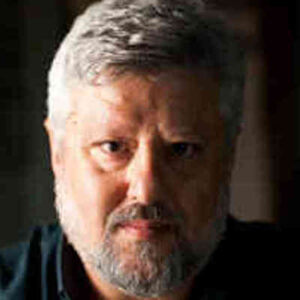Baskin said in a video interview from his home in Jerusalem conducted by the British magazine New Statesman that
“there is only one way to ensure that the hostages are released alive, which is the release of all Palestinian prisoners detained in Israeli prisons, and the starting point for resolving the conflict is to recognize that all those who live “Between the river and the sea, they have the same rights. If we don’t start there, we won’t get anywhere.”
Baskin, who spent nearly twenty years negotiating with Hamas and played a major role in the release of Israeli soldier Gilad Shalit by the Hamas movement, which held him captive from 2006 to 2011, confirmed that he is now in contact with both the Israeli leadership and the Hamas movement. “In an informal capacity to negotiate the release of 242 hostages in Gaza, he realizes from experience that the participation of other countries, Qatar, which hosts the Hamas leadership in Doha and facilitates money transfers to the group, and Egypt, which controls the Rafah border crossing in the southern Gaza Strip, will be decisive for their return. Safe.
Netanyahu lacks initiative
Baskin explained that he informs Israeli officials about his work, but he never asks for permission. He said: “When I learned that there was no contact between Qatar and Israel, I gave them phone numbers. It took a few days, because it was not clear on the part of the Israeli government and Qatar whether they would accept the offer of direct contact,” indicating that this clear lack of initiative on the part of The government of Benjamin Netanyahu may surprise some, and not give much comfort to the families of the hostages, but that is simply “the way things are.”
Regarding what will happen if Israel reoccupies Gaza, Baskin said: It must announce that it does not intend to stay
Full details of the deal
Baskin estimated that about 7,000 Palestinian prisoners, including Hamas activists who participated on October 7, would be part of the deal. “Whoever has to make this decision, the burden is enormous,” he said, but this is “the only way to bring all the hostages back alive.” He pointed out that there are at least 559 of these detainees who have been sentenced to life imprisonment for killing Israelis, and that these detainees could be sent to Gaza, or to other countries that support Hamas to some extent, such as Turkey, Iran, or Qatar. He added:
“I spoke with Israeli security officials who said they were only prepared to send the prisoners to Gaza, and then they would deal with them one by one,” he said, explaining that all the Hamas activists who participated in Shalit’s arrest, including the four prison guards, are now dead. He said: “I imagine this will be the end for anyone who touched the kidnappers now, including those who sent the gunmen to kill people on October 7 and capture others.”
Baskin added that he had worked for decades on projects to promote Jewish-Arab peace and coexistence, and in 1992 he helped establish secret talks in London with Israeli and Palestinian interlocutors, in preparation for the Oslo process. In June 2006, days after Hamas kidnapped Shalit, he opened contacts with the movement to release him, which took place after five years and four months of captivity, in exchange for the release of 1,027 Palestinian prisoners, although the offer had been “on the table,” as he said, since January. The first 2006.
He also spent 8 years negotiating the return of the bodies of Oron Shaul and Hadar Goldin, two Israeli soldiers killed in Gaza in 2014 (Hamas claims they are still alive), and the release of Israelis Avira Mengistu and Hisham al-Sayyid, who had been detained in the Gaza Strip since 2014 and 2015.
In 2011, he came close to convincing Hamas to agree to a long-term ceasefire, but in 2012, Israel assassinated Ahmed al-Jaabari, the leader of Hamas’ military wing in Gaza, “destroying any possibility of moving forward with the agreement.” His last attempt to reach a ceasefire agreement was in September 2022, and he said: “I convinced Ghazi Hamad [a member of Hamas’ political bureau] to meet with me in a neutral place. I suggested three different countries, but he hesitated… and perhaps he knew what Hamas was planning on October 7.” Because he left Gaza for Beirut a few months ago.”
He concluded by saying:
“Israel must offer something better to the Palestinian people, so that it can blame Hamas for setting the Palestinian issue back 75 years.”
Salvation through the two-state solution
Baskin considered that the main obstacle to his efforts had long been that Israel “was not really intending to implement any real agreement.” He said: Behind this siege, Israel wanted to keep Hamas weak in Gaza, where more than two million people live below the acceptable standard. I knew something would eventually explode. According to him, “the big difference between the Shalit negotiations in the first decade of the twenty-first century and the plight of the hostages in Gaza now is time.” He said: “Now, we do not have five years and four months. We have days before the Israeli army enters Gaza and storms the tunnels in search of the hostages, terrorists and their leaders. Once that begins, the window of opportunity for negotiation will end.”
Regarding what will happen if Israel reoccupies Gaza, Baskin said:
“It must announce that it does not intend to stay. The government must not give in to pressure from former residents of Gush Katif (the Jewish settlements in Gaza) to return to the Strip, as this will be a ‘disaster for Israel.’ If If Hamas is ousted from Gaza, an international Arab force must stabilize it, as it did in Lebanon after the civil war, so that Palestinian Authority elections can be held. At the same time, a real political process is needed that prioritizes the two-state solution, with massive international support and pressure. “From both sides. The starting point must be the recognition that all who live between the river and the sea have the same rights. If we do not start there, we will get nowhere.”
He concluded by saying:
“Israel must offer something better to the Palestinian people, so that it can blame Hamas for setting the Palestinian issue back 75 years. We must get out of the illusion that you can occupy another nation, hold it, and guard it for 56 years, and then expect to get Peace be upon you. You cannot detain two million people in a small area like this, in a dead end, and expect calm.”
Originally Published in Arabic by the Lebanese electronic platform, Asas Media



